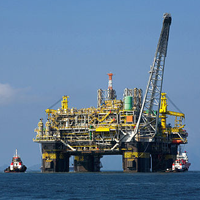For much of the last half-century, the U.S. has failed to engage the nations of resource-wealthy Latin America in any strategic manner. This lack of attention to our closest neighbors, and some of our strongest allies, is dangerously short-sighted given U.S. dependence on Latin America as a source for our energy. Currently, more than one-fourth of America's imported oil comes from Latin America, which is estimated to hold 13.5 percent of the world's proven oil reserves. In 2009, the U.S. imported 11 percent of its crude oil from Mexico, 9 percent from Venezuela, 3 percent from Brazil and 2 percent from Colombia and Ecuador. Brazil, Ecuador and Venezuela all send more than 50 percent of their oil exports to the U.S.
In 2007, then-Secretary of State Condoleezza Rice said, "[W]e are eager to expand our cooperation on energy with more [Latin American] countries . . . Our goal should be nothing less than to usher in a new era of inter-American security in energy." But very little was done to put those words into action. Two years later, in June 2009, President Barack Obama, speaking at the Fifth Summit of the Americas in Trinidad and Tobago, pledged to engage with Latin America on issues of energy. Similarly, very little has happened in the last 17 months. Reflecting the current administration's failure to recognize the importance of Latin America in our energy security matrix, during her visit to Ecuador in June 2010, Secretary of State Hillary Clinton gave a 4,500-word policy address titled, "Opportunity in the Americas." It contained not a single mention of energy.
America imports more than 65 percent to 70 percent of its energy needs, making it vulnerable to disruptions in the supply chain and to price volatility. As a result, it must consider its strategy for strengthening long-term energy security through secure and stable access to energy resources. In the short term, there are three issues that could affect such secure and stable access to energy resources from Latin America: falling production, rising global demand and increased competition, and resource nationalism.

